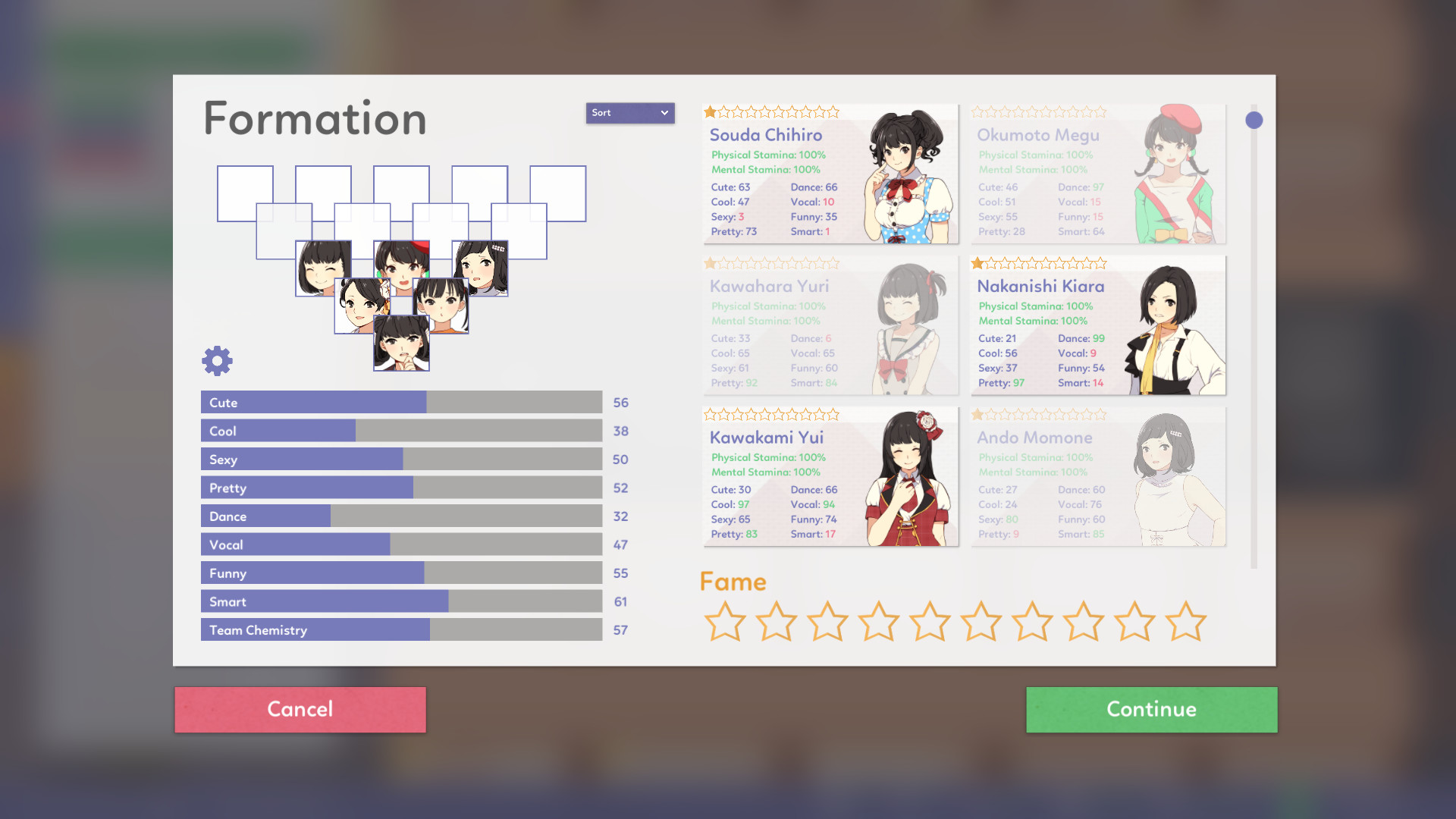

And special events require their own form of management. Video and radio shows need people who know what they’re doing to set things up. Music singles require lyrics to be written, music to be composed, choreography to be crafted and marketing plans to be devised. At the same time, you need to take care to manage your idols’ stamina and fame levels - focus too much on one idol and you risk leaving the others behind in terms of exposure while exhausting the one you’ve been emphasising.Īny time you want your idols to work on a project, it’s a team effort that extends well beyond just the performers. Each of these opportunities tends to demand a particular specialism, with idols who have better statistics in the appropriate areas potentially bringing more money in. Office staffers can be hired to pursue business opportunities for your idols, including events such as appearances in photoshoots and advertisements.
#Idol manager platforms tv#
Getting your idols to host regular livestreams, radio or TV shows, for example, is a good means of bringing in money each week - though there are, of course, expenses to offset against that income. There are plenty of opportunities to do this in Idol Manager, ranging from the aforementioned “clicker” mechanics to more substantial means of making passive income. Your early goals will be to make yourself as self-sufficient as possible, and as such you’ll need to discover some ways to make money.

Structurally and mechanically, the game follows the mould of classic management sims to a tee. To be fair, by the point the tutorial fizzles out you can probably figure out the rest of the game’s interface for yourself, but for those easily daunted by games that don’t systematically walk you through each and every icon and menu item, be prepared for this. Idol Manager’s tutorial introduces you to the basics of the game, but after a certain point it rather suddenly leaves you to start exploring things for yourself.

We’re not talking mobile game-style “hours unless you pay £5 to skip the timer” waits here, mind we’re talking maybe an in-game day or two, the speed of which varies according to the speed you set the game to run at. These options, although simple, provide you with something to do while you’re waiting for other things to happen - because the more substantial actions you take in the game all require varying amounts of time to complete. Idol Manager’s “clicker” element consists of the fact that each day, you can choose to get your idols to Perform (which brings in money), Promote (which increases their fanbase) or take a Spa Day (which costs money, but restores their stamina).

#Idol manager platforms series#
Your ultimate aim is, of course, to make as much money as possible, but there is a story mode as well, that sets you a series of structured goals in order to advance your way through a narrative, develop a rivalry with another character and perhaps find out what Mr. He’ll even let you have one floor of the building rent-free - but you’ll have to pay for any further expansion.įrom here, your job consists of building new rooms in the tower, hiring staff to occupy those rooms, setting those staff to work, recruiting idols and producing a variety of media using said idols. Fujimoto, as your new friend is known, is keen to go somewhat “legit”, and thus encourages you to start your own idol agency. Having previously run a somewhat shady operation out of the building, it seems that Mr. In Idol Manager, you are cast in the role of a new producer who is taking over an abandoned building at the behest of a local businessman of questionable background, morals and ethics. Idol Manager is very much a modern take on the classic ’90s management sim, with a few concessions to today’s gaming trends, such as some light “clicker” elements and a visual novel-style narrative component. And don’t even get me started on Tiny Tower how anyone thought that game’s utterly mindless nature was a successor to the classic SimTower is beyond me.īut I digress. No-one has ever quite forgiven EA for what they did to Theme Park and Dungeon Keeper, nor Atari for their recent crimes against RollerCoaster Tycoon. In more recent years, the mobile and casual games markets threatened to all but destroy the classic management sim by providing experiences that looked like the old-school sims of yore, but which were actually mindless, shallow tap-and-wait (or pay-to-skip) affairs in which no strategy or actual management was involved.


 0 kommentar(er)
0 kommentar(er)
